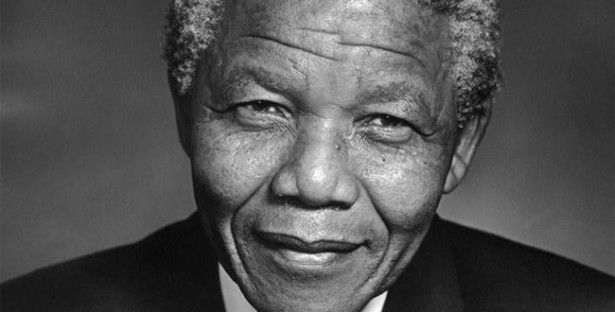
It’s been 25 years since London’s Wembley Stadium rocked with a star-studded birthday party for Nelson Mandela. Some 72,000 people jammed the arena to toast Mandela’s 70th birthday — vicariously, of course, because the then-African National Congress leader was still under lock and key.
Six hundred million people in 67 countries (South Africa, unsurprisingly, was not one of them) tuned in for 11 hours of music by Sting, Dire Straits, Miriam Makeba, Hugh Masekela, Whitney Houston, Simple Minds, Youssou N’Dour, The Eurythmics, Eric Clapton and dozens of other artists. Tracy Chapman’s “Talking ‘Bout a Revolution” is as fresh — and as urgently needed — as ever, while Peter Gabriel’s “Biko” remains hauntingly electrifying. It all culminated in Steve Wonder leading the assembled in “We Just Called to Say ‘We Love You.’”
Variously named The Nelson Mandela 70th Birthday Tribute, Freedomfest, the Free Nelson Mandela Concert, and Mandela Day, the concert was staged during a critical period when the mass organizing within South Africa and the international divestment movement outside it were synergistically accelerating. (Though the London concert was a birthday celebration, it was actually held on June 11, six weeks before Mandela turned 70.) This event has been credited by some as an important contribution to the momentum for Mandela’s release by increasing pressure on the South African apartheid government. Twenty months later he was freed, bringing an end to 27 years in prison — and the rest, as they say, is history.
Thursday, even as the media runs almost hourly updates about Mandela’s ongoing hospitalization and “critical but stable” condition, people throughout the world are lifting their voices in wishing him a happy 95th birthday. The United Nations has declared Thursday Nelson Mandela International Day.
The 1988 concert was, like many anti-apartheid actions, a lunge in the direction of freedom, though with no specific sense that within a few years the South African political landscape would seismically change. As South African activist Mkhuseli Jack says in the PBS series A Force More Powerful segment entitled “Freedom in Our Lifetime,” organizers on the ground in the mid-1980s dissuaded each other from putting the idea of Mandela’s release among their list of demands. “No, that’s too impossible!” they would say to one another. The demands had to be realistic — a lesson for those of us who can’t bring ourselves to imagine, let alone demand, the impossible.
But dismantling the legal apartheid system did not come by wishing. Many efforts inside and outside of South Africa over five long decades contributed to this seismic transformation. One of these was “The University of Robben Island.”
Mandela spent most of his imprisonment in the prison on Robben Island, a facility near Cape Town where political prisoners had been incarcerated since the 17th century. As many as 1,500 anti-apartheid activist were crowded into the prison, and Mandela and other ANC leaders were determined to turn the suffocating degradation of imprisonment — he spent the first years literally breaking rock — into a transformative experience. They made of the prison a “university” designed to train the next generation of anti-apartheid leaders.
As Mandela explains in his autobiography, Long Walk to Freedom, they called the off-shore jail a university “not only because of what we learned from books, or because prisoners studied English, Afrikaans, art, geography, and mathematics, or because many of our men… earned multiple-degrees. Robben Island was known as the university because of what we learned from each other. We became our own faculty, with our own professors, our own curriculum, our own courses. We made a distinction between academic studies, which were official, and political studies, which were not.”
Mandela, who was serving a life sentence, was determined to make use of this time to transmute the terrain of oppression into a zone of existential freedom that would prepare those coming through the prison to deepen and broaden the struggle for change and, eventually, to build the new South Africa. In spite of everything, the curricula devised behind those walls compelled the inmates to imagine and demand the impossible.
Today Robben Island is a museum. President Obama visited the facility during his recent trip to South Africa. It bears within its walls the memories of the machinery of dehumanization for the nation as it struggles fitfully to create a new society. But even more significant, perhaps, is the legacy of the pedagogy of liberation.
And for the rest of us? Robben Island University bequeaths the lesson that training and transformation can happen anywhere, and that it is as crucial for us as it was for the future leaders of South Africa. We, too, can get the grounding we need if, like those imprisoned during the anti-apartheid struggle, we are determined to do so. A handful of such programs already exist to help us do this, including Training for Change.
Nelson Mandela was not able to attend his 70th birthday bash at Wembley Stadium in 1988. Instead he was behind the prison gate, engaged in the quiet work of teaching and preparation — a practice that he would soon bring into the tense and delicate transition to an apartheid-free South Africa. For two decades, all of us, directly or indirectly, have been the fortunate students of this teacher.
Dear professor Nelson Mandela – happy birthday!

Thank you Ken for this thoughtful article about the power of relentless persistence.